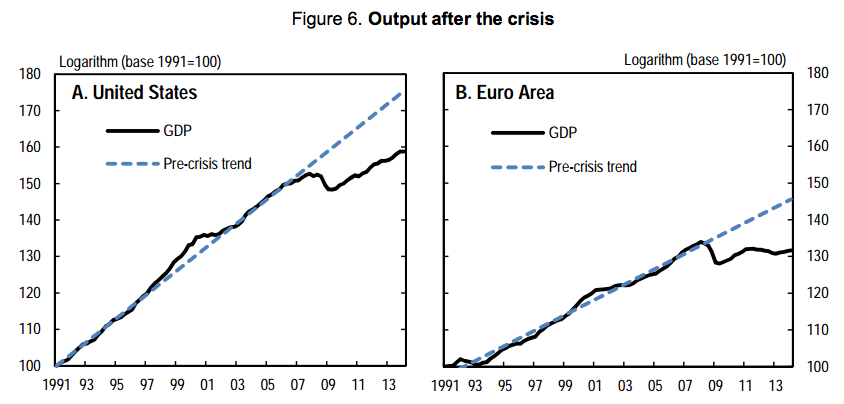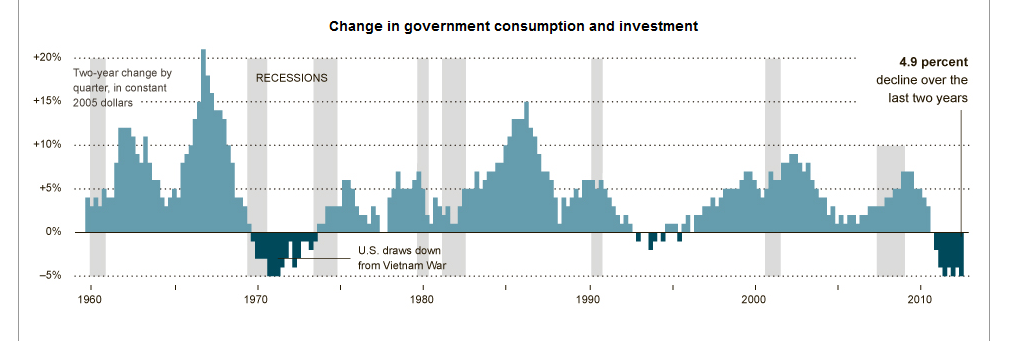I’m not much for writing this evening so I’ll outsource most of this. To Doug Muder for the intro:
“[Last week] a controversy broke out in economics, and it actually deserves your attention. A paper that has had a major influence on public policy around the world turns out to be wrong. And not just wrong in a subtle way that only geniuses can see, or even wrong in an everybody’s-human way that you look at and say, “Oh yeah, I’ve done that.” This one was wrong in three different ways that make you (or at least me) say, “That can’t be an accident.”
The bogus paper came out in 2010: “Growth in a Time of Debt” by Carmen Reinhardt and Ken Rogoff (both from Harvard). The paper that refutes it appeared last Monday: “Does High Public Debt Consistently Stifle Economic Growth? A Critique of Reinhart and Rogoff“� by Thomas Herndon, Michael Ash, and Robert Pollin (all from the University of Massachusetts).
Handoff to Paul Krugman:
The intellectual edifice of austerity economics rests largely on two academic papers that were seized on by policy makers, without ever having been properly vetted, because they said what the Very Serious People wanted to hear. [One of those papers] was Reinhart/Rogoff on the negative effects of debt on growth. Very quickly, everyone “knew” that terrible things happen when debt passes 90 percent of GDP.
Some of us never bought it, arguing that the observed correlation between debt and growth probably reflected reverse causation. But even I never dreamed that a large part of the alleged result might reflect nothing more profound than bad arithmetic.
But it seems that this is just what happened. Mike Konczal has a good summary of a review by Herndon, Ash, and Pollin.
Long story short, Reinhart and Rogoff (RR) screwed up the Excel spreadsheet they used to derive their conclusions. RR’s conclusion that ohmygodwereallgonnadie if debt exceeds 90% of GDP? Invalid. They used the wrong numbers omitted some critical data from their analysis.
Continue reading →


